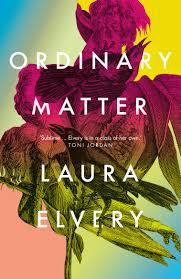Laura Elvery’s second collection of short stories, Ordinary Matter (UQP 2020) is anything but ordinary. In fact, this anthology is quite an extraordinary collation of seemingly disparate tales – some historical, some futuristic, some quite esoteric and some straightforward and scientific – that hang together with the common bond that each features a female winner of the Nobel Prize for Science.
There have been 20 such winners over the years since 1901 when Marie Curie was first awarded her Nobel Prize for Physics. Some of the stories feature these women in very obvious and direct ways, with the woman the protagonist or somehow the centre of the narrative. In other stories, the link between the prize-winner and the story is tangential or obscure or abstract. But in every one of these 20 short stories, Elvery has combined literature with science to produce an alchemy of brilliance.
My recommendation for reading this collection is to read them in historical order, as they are presented. I read each one and then read the Author’s Notes at the back of the book on that particular story. I found this to be the ideal way to get the most out of each story: I came to every new story fresh and without any preconceived ideas about its content (although Elvery does preface each chapter helpfully with a small note about the name of the woman and what she was awarded the prize for), and I was able to read without prejudice. Reading the notes afterwards – discovering how cleverly the author had intertwined fact with fiction, or how convoluted a connection she had made between the words and the history – filled me with delight. Sometimes the prize-winning scientist is only a footnote to the story, almost an afterthought, a thin and fragile line that, in a sliding door moment, could be so easily broken. Every story is thoughtful and beautifully crafted, with words that sing.
I had read a few of these stories when they were published in previous literary journals or collections, but as I reread them, I relished the feeling that it is here – in THIS collection – that each has found its spiritual home. Like beads on a string, every one is whole and complete, but added together they form something wonderful.
I loved the two stories featuring Marie Curie, the only woman to win the Nobel Prize for Science twice. Something Close to Gold, about a baby washed up on a beach, is a wonder. My other favourites include Corn Queen, The Garden Bridge, The Town Turns Over and perhaps my favourite of all, Little Fly. Featuring settings as diverse as the Grand Canyon, Queensland, Stockholm and the US, and spanning more than a century, this collection is inspired by the ‘women whose work has altered history and saved millions of lives’.
There are so many poetic and poignant lines to be found in this writing:
‘The evening held the heat from the day like a bell jar.’
‘Everything looked different now that we were frightened.’
‘How strange, then, that those women still felt something like triumph go through their bodies when they saw the destruction they had created.’
‘It takes as long as it takes and it always has, always will.’
‘Both outlived those terrible men.’
‘We got lost when we couldn’t find our way to the end.’
‘Yes, she catches her name and holds it tight.’
‘It was clear to all of us on that beach that humanity stood on a precipice.’
This is a remarkable collection that speaks to our collective curiosity in the field of science, the particular role women play in that quest, and the complex mix of ‘ingenuity and discovery, motherhood and sacrifice, illness and legacy’ that is entangled in the scientific advances made by women and the struggles they have encountered along the way. But even if you have no interest in science, this book stands alone as a collection of brilliant stories that each leave you feeling slightly bereft, or a little bit stunned, a step closer to happiness or within arm’s reach of hope.

